Nutritionists Reveal How to Get the *Right* Amount of Protein
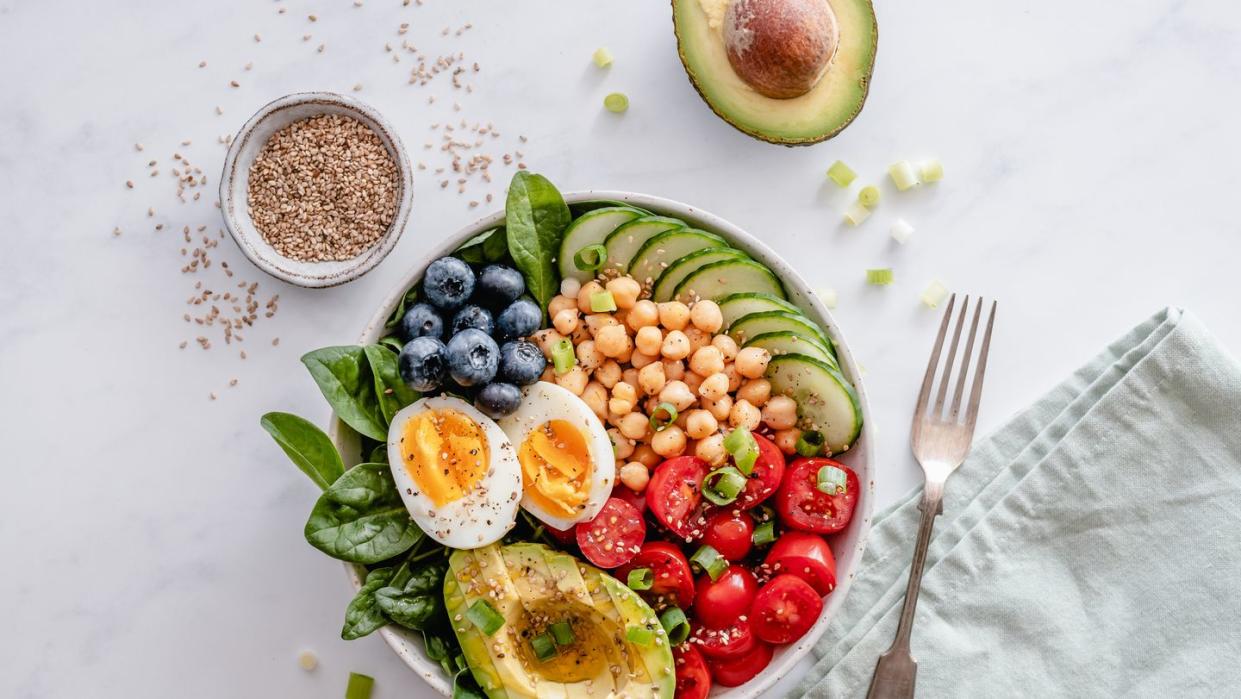
Protein is buzzy right now, with influencers and bonafide nutrition experts alike sharing the best sources of it, and tips to boost intake. But this macronutrient has always won the popularity contest in our books, and for good reason — it wears so many hats when it comes to our body runs and our overall health.
“Protein is an essential nutrient that plays two categorically critical roles in human biology — one for structure (it’s the key nutritional component of muscles, skin, bones and other tissues), and the other for function (aiding in countless biochemical processes in our bodies, such as hormone regulation),” explains Jaclyn London, M.S., R.D., C.D.N., an NYC-based registered dietitian, consultant, podcast host and author of Dressing on the Side (and Other Diet Myths Debunked: 11 Science-Based Ways to Eat More, Stress Less, and Feel Great About Your Body).
So getting enough protein is super important — especially as we get older, when maintaining muscle mass and bone density should be top of mind to help prevent falls or fractures that could disrupt our quality of life.
Before you start super-loading your daily protein intake, here’s some food for thought that London says everyone should keep in mind:
If you aim to eat a source of protein with each meal and snack throughout the day, you can meet your protein needs without overthinking it too much. Stressing over protein goals can hamper sustainable healthy eating patterns, and “I see people all the time who have been influenced by social media into thinking we need to be eating protein in amounts that are simply impossible to do without feeling stuffed or relying on supplements — and I’m here to take that concern off your plate,” London says. “There is a better way."
Packaged foods that provide 20% or more of the daily value for protein are considered high in protein, and while everyone’s protein needs vary depending on their individual body composition and health status, "this bench line can provide a decent context for whether a product or snack will deliver a beneficial amount of protein,” says London.
Ready to pump up the protein to stay vibrant for life? Here are some of the foods highest in protein, plus expert-backed tricks for how to increase your protein intake.
Salmon
This fan favorite fish lives up to its reputation when it comes to nutrition. It’s a good source of lean protein, and also boasts omega-3 fatty acids that help tame inflammation. “I’d also stress that most Americans (up to 90% of us!) aren’t meeting our needs for seafood throughout the week (aim for 2-3 servings or 8-12oz/week),” says London. “So if there’s one protein food I’d want more of us to focus on for maximizing protein and omega-3 intake, it’s seafood!”
Protein content: 17g protein per 3oz wild caught Alaskan salmon.
RELATED: A Full List of the Best High-Protein, Low-Carb Foods
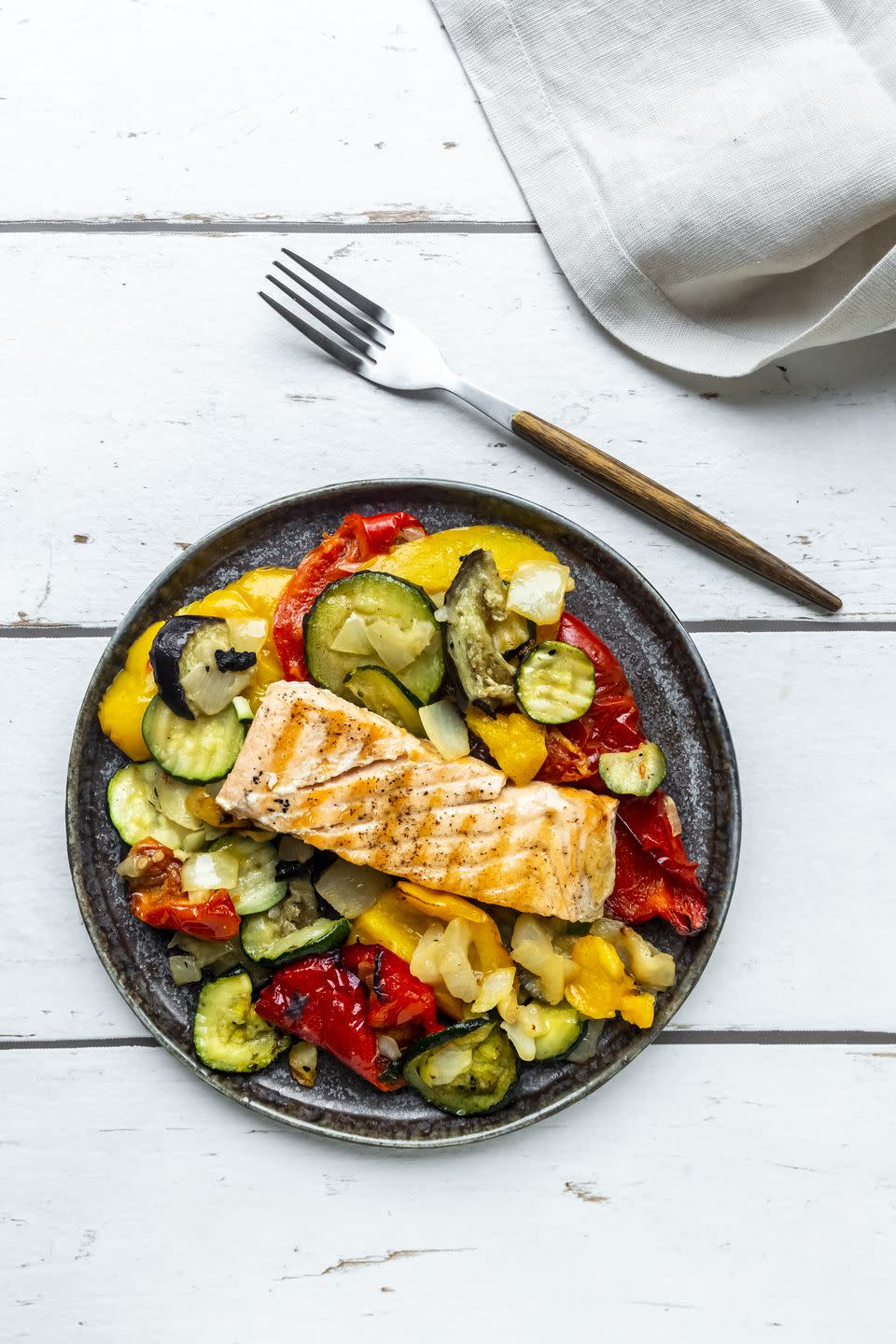
Chicken
Lean protein is a pillar of the Mediterranean diet, arguably one of the most sustainable and healthful eating styles out there, and poultry, like chicken, is an excellent protein choice. Chicken breast is a fan favorite among athletes for a reason — it contains significantly more protein by weight compared to thighs, and it's very versatile, so you can make countless healthy chicken dishes. If you do prefer thigh meat, that’s still a decent amount of protein, and you’ll also enjoy higher amounts of zinc and selenium than you get from the breast meat; this makes chicken a win for immunity, since zinc, selenium and protein all support a strong immune system, says London.
Protein content: 23g protein per 100g.
RELATED: The Best 7-Day Mediterranean Diet Meal Plan for Beginners
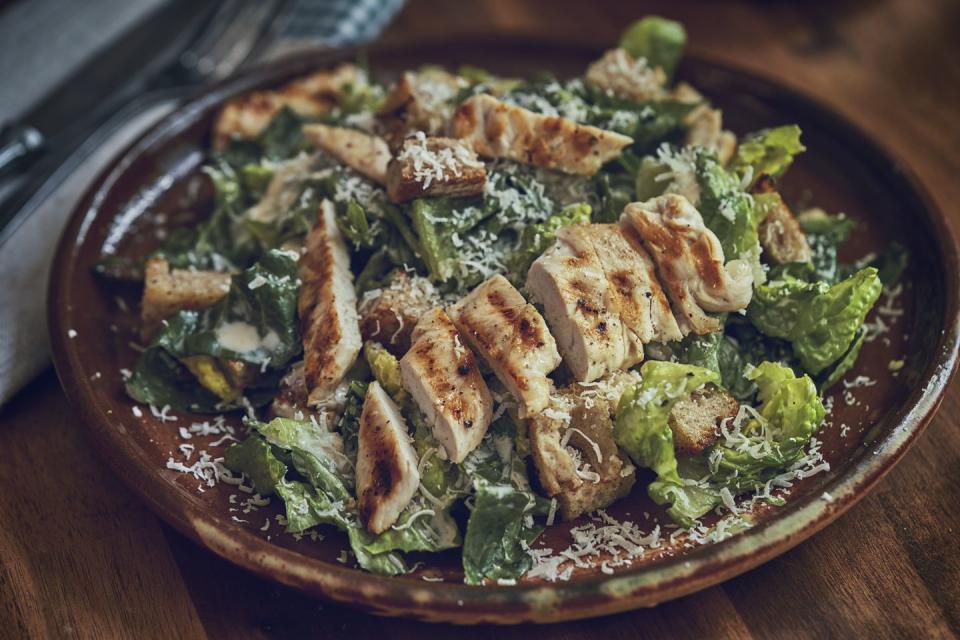
Lentils
Lentils are a staple food in many cultures, and they are a powerhouse of plant protein, plus they are rich in fiber and other essential vitamins and minerals such as iron and potassium, says Vandana Sheth, RDN, CDCES, FAND, a plant-based foods and diabetes expert. “Protein needs increase with age to help preserve muscle mass, which naturally decreases through the years,” Sheth adds, so “having adequate protein can help with strength, bone health and tissue repair, which all contributes to better mobility and overall quality of life.” Enjoy them as a warm side dish, as a salad topper or turned into a lentil salad, or add them to soup, stews or pasta.
Protein content: 18g protein per cooked cup.
RELATED: Best High-Protein Vegetables to Add to Your Plate
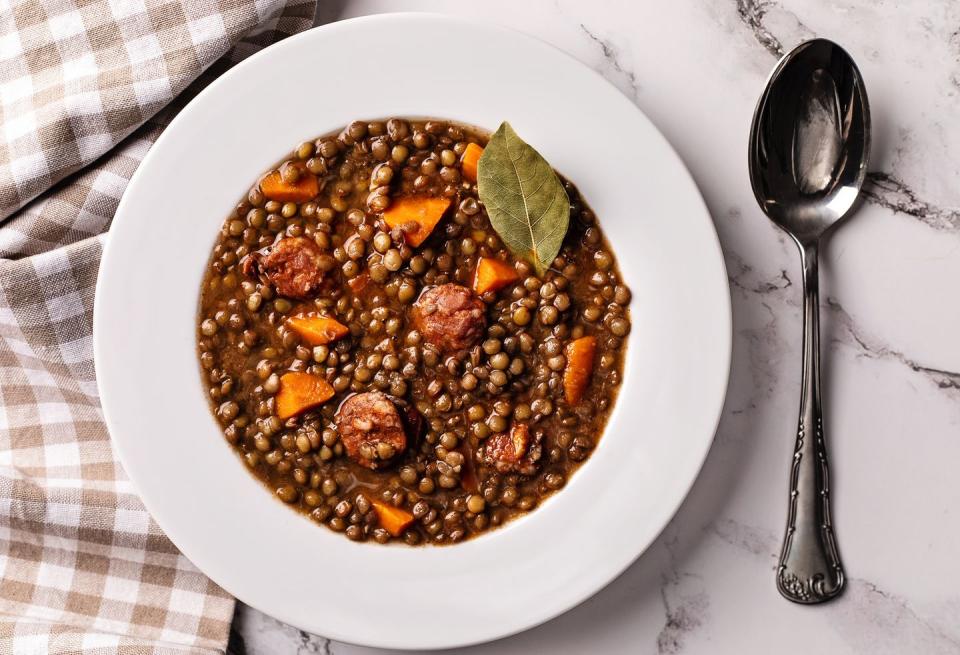
Greek yogurt
If yogurt is part of your regular rotation, good on you — it’s an excellent source of not only protein, but also calcium and gut-friendly probiotics. Did you know that not all yogurt necessarily contains probiotics, or the beneficial bacteria that contributes to a balanced gut microbiome? To ensure you’re reaping yogurt’s protein and probiotic benefits, check the label: It should either list the live and active cultures the tub contains, or have a “Live and Active Cultures” seal from the International Dairy Foods Association.
Protein content: 9g protein per ½ cup.
RELATED: Best Greek Yogurt Brands, Tested by Nutritionists
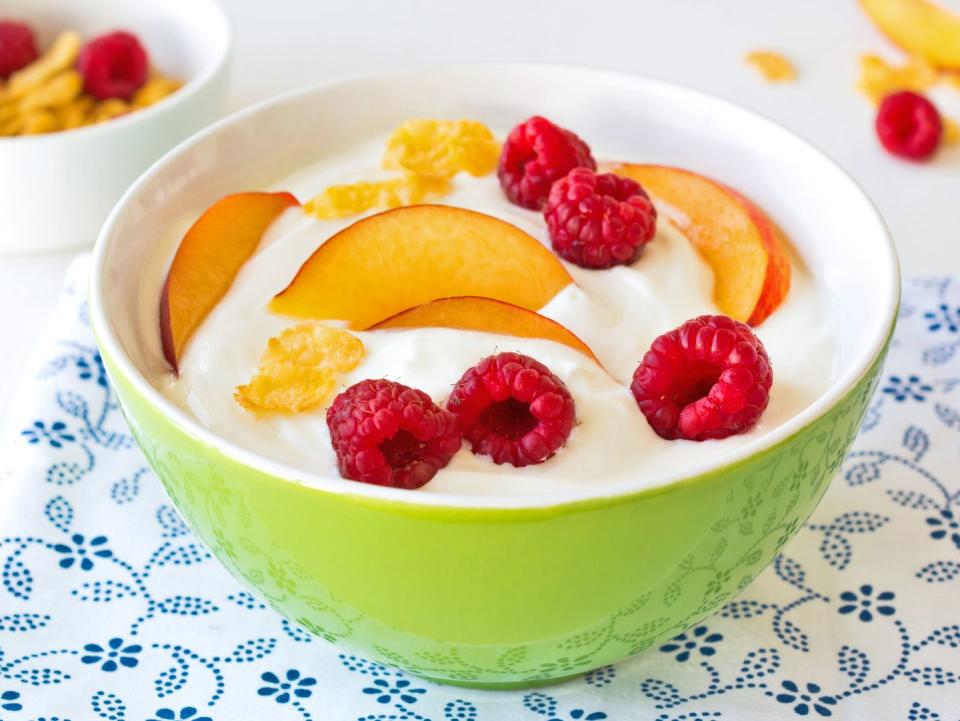
Chickpeas
This is a star ingredient in many cuisines, and garbanzo beans are an excellent source of plant-based protein. More and more research shows that eating more plant-based foods has a majorly positive influence on our health, such as supporting the heart, blood sugar regulation, healthy weight management and other factors linked to chronic disease risk.
Protein content: 15g protein per cooked cup.
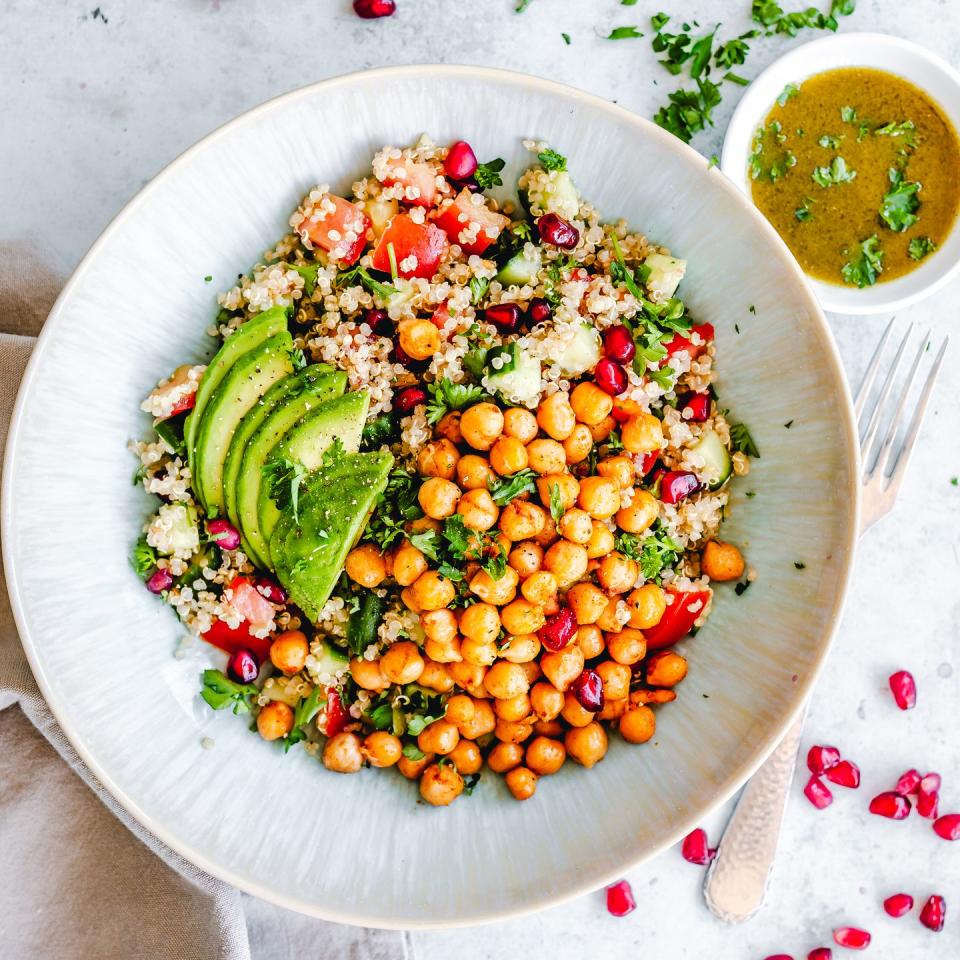
Quinoa
You may think of meat, seafood or beans as obvious protein-filled sources, but certain whole grains can contribute this important nutrient, too. “The key when it comes to protein is to enjoy a variety of nutrient dense options to help you easily meet your daily needs without stress so you can nourish your body in a sustainable and enjoyable way,” says Sheth. Quinoa is an especially solid choice because it's a plant-based pick, and contains all nine of the essential amino acids (amino acids are a crucial component of protein) that our body needs but can’t produce on its own. Try swapping in quinoa for rice, or mixing the two for a nutty medley; it’s also great added to a salad or in place of toast with eggs.
Protein content: 8g protein per cooked cup.
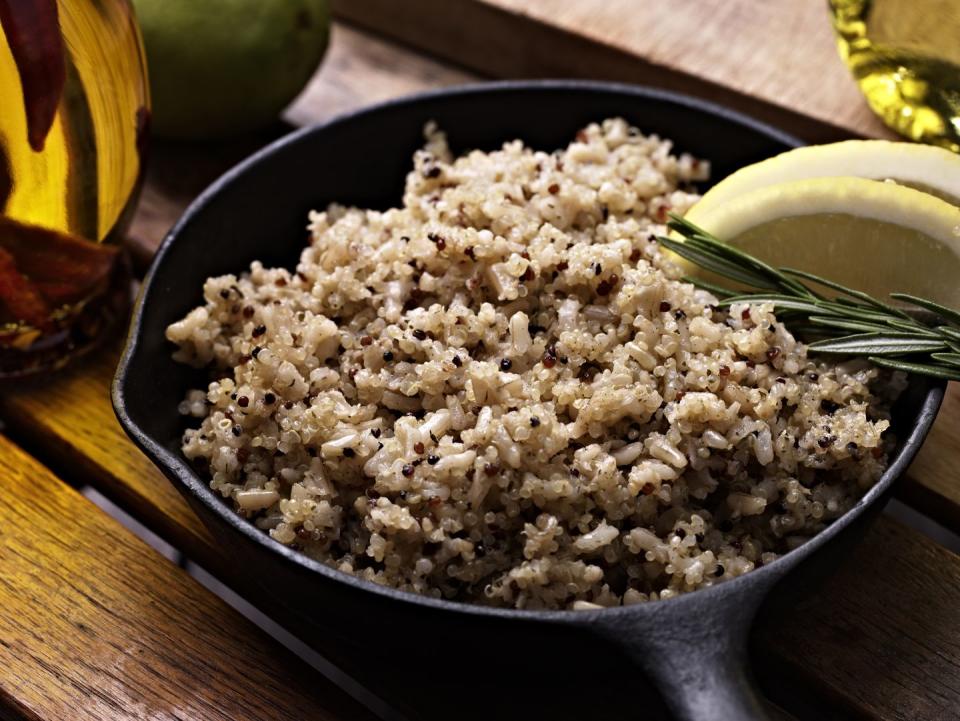
Eggs
Eggs are often called the “perfect food,” and it’s true! They’re a good source of protein, and are also fantastic when it comes to keeping our brain sharp. Egg whites are responsible for the protein content and the yolks contain a host of other cognitively-friendly nutrients such as choline. “Amino acids, the building blocks of protein, are necessary for the production of neurotransmitters in the brain, which play a key role in cognitive function and mood regulation,” London explains. Think beyond breakfast and use eggs as a binder for meatballs or plant-based balls, as a rice bowl or salad topping, or simply plop a yolky egg or hardboiled egg on top of savory roasted veggies or pasta.
Protein content: 6g protein per one large egg.
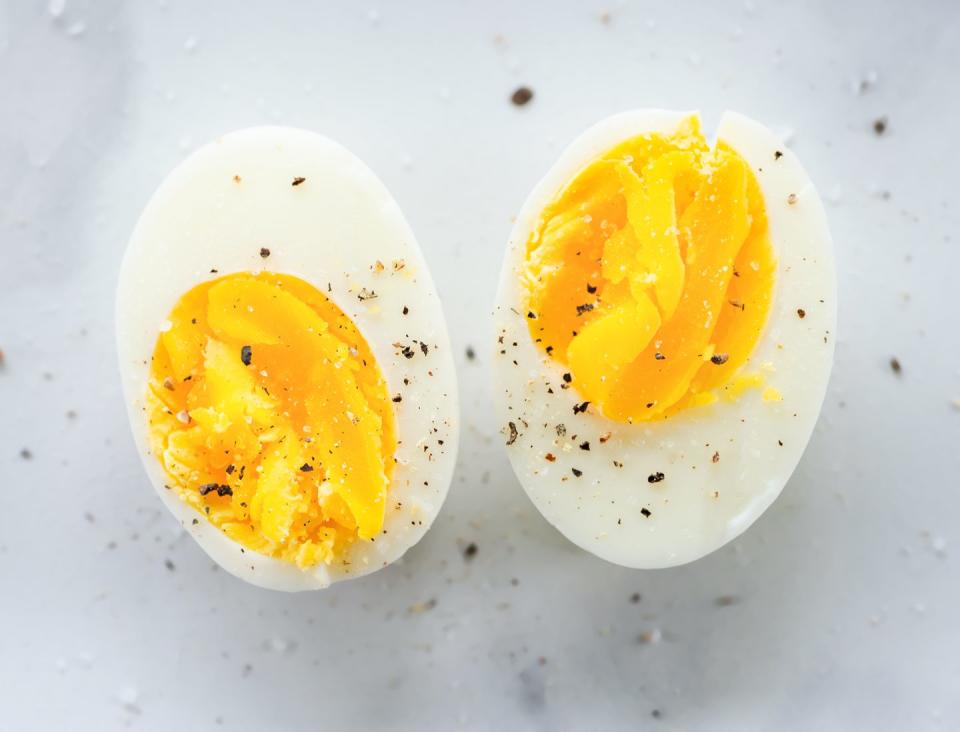
Cottage cheese
If you love yogurt, give cottage cheese a chance — it actually inches out Greek yogurt in the protein category by delivering about three extra grams of protein, so it’s a great way to mix things up. Try it with sweet toppings such as fruit and nuts (just like you enjoy with your yogurt!), or build cottage cheese toast with savory add-ins like tomatoes and basil.
Protein content: 12g protein per ½ cup.
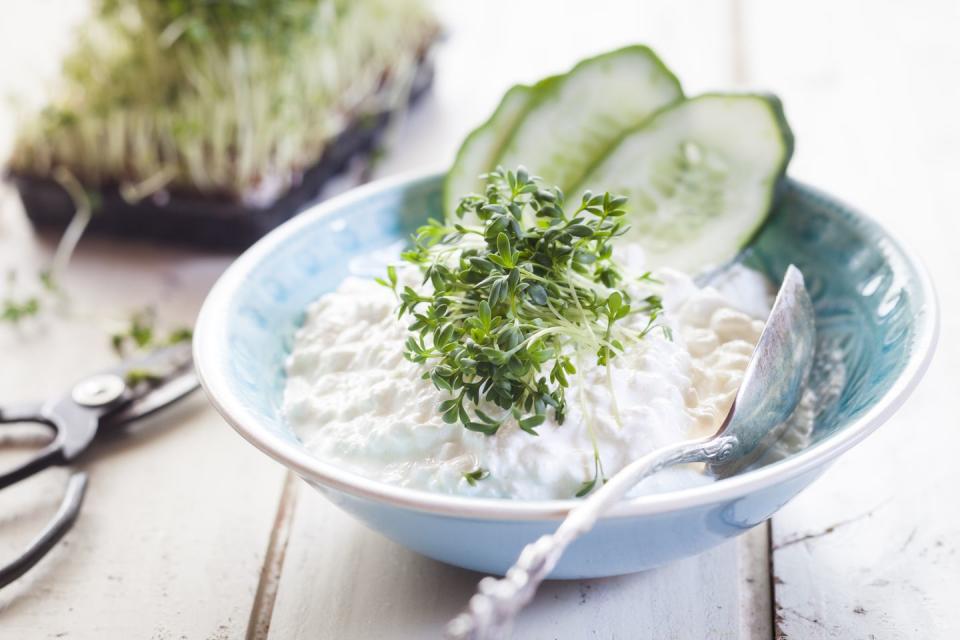
Edamame
“Edamame are young soybeans that make for a quick and delicious snack or an excellent addition to a salad or rice dish,” says Sheth. Soy-based foods such as edamame are complete proteins, meaning they contain those coveted nine essential amino acids that you can only get through food. “Protein helps increase satiety and keeps us feeling full longer, which can support healthy weight management and metabolism,” Sheth adds.
Protein content: 17g protein per cooked cup.
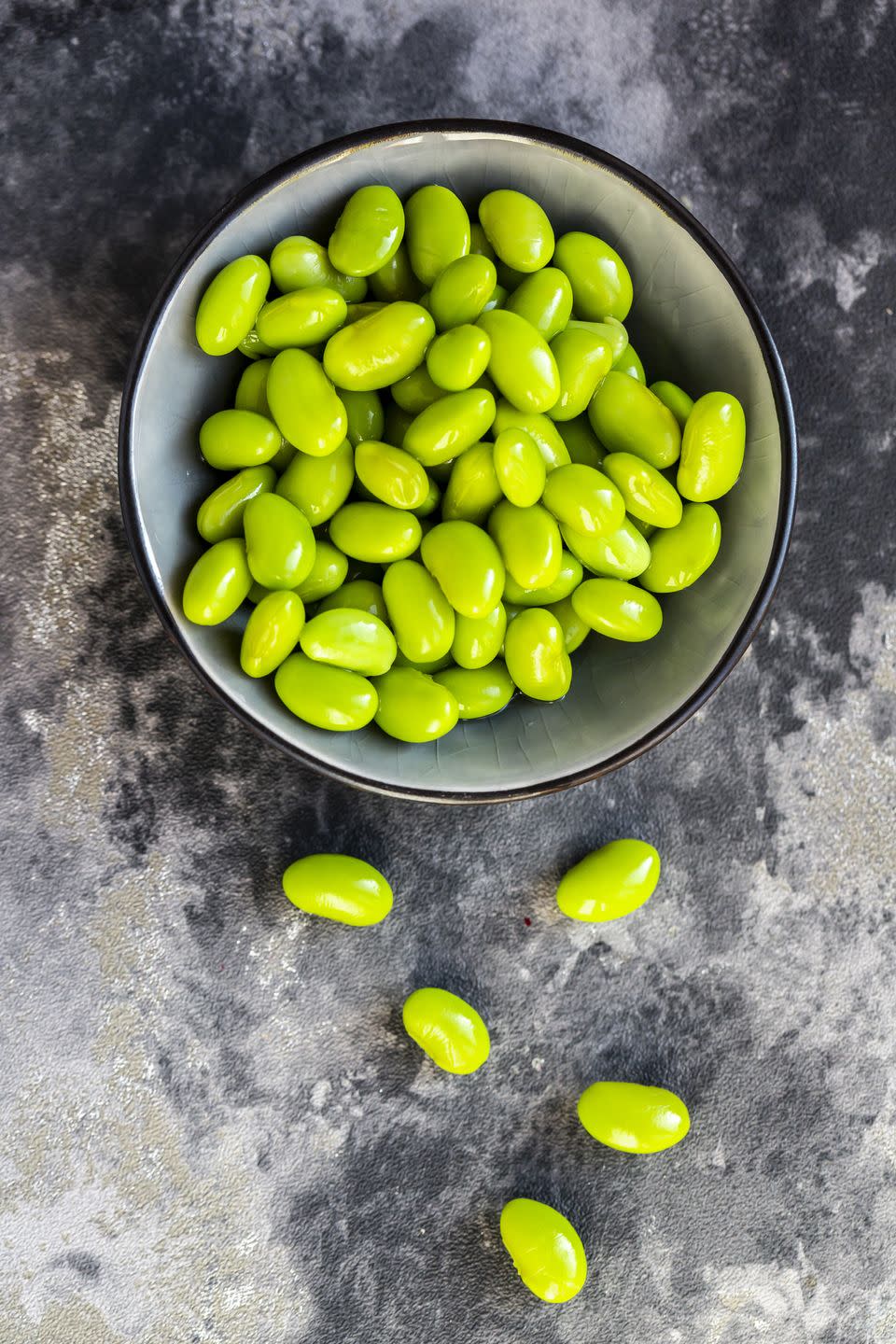
Hemp seeds
“This is my favorite sneaky but easy way to add protein to smoothies, yogurt parfaits, oatmeal bowls, energy bites and more,” says Stefani Sassos, M.S., R.D.N., C.D.N., NASM-CPT, director of the Good Housekeeping Institute’s Nutrition Lab. Three tablespoons of nutty hemp seeds, also called hemp hearts, provides about the equivalent of a traditional scoop of protein powder and is also a good source of heart-healthy omega-3s, Sassos adds.
Protein content: 10g protein per each 3 tbsp serving
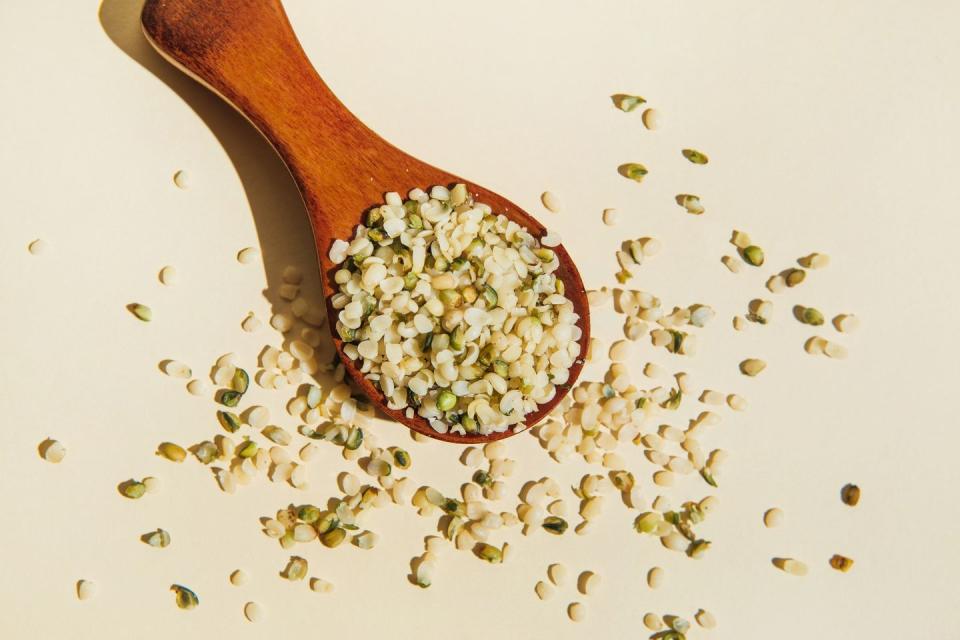
Pistachios
You won’t reach your protein goals with nuts alone, but they can definitely pad your intake and make for a great snack. Pistachios are particularly high in protein, and they also contain the nutrient trifecta when it comes to energy and satiety: protein, fiber and fat. “When talking to clients, I often talk about the importance of protein at meals and snacks to help us stay in touch with our body’s own hunger and satiety cues and to provide more sustained energy throughout the day,” London says.
Protein content: 6g protein per ounce.
RELATED: The Best Protein Bars
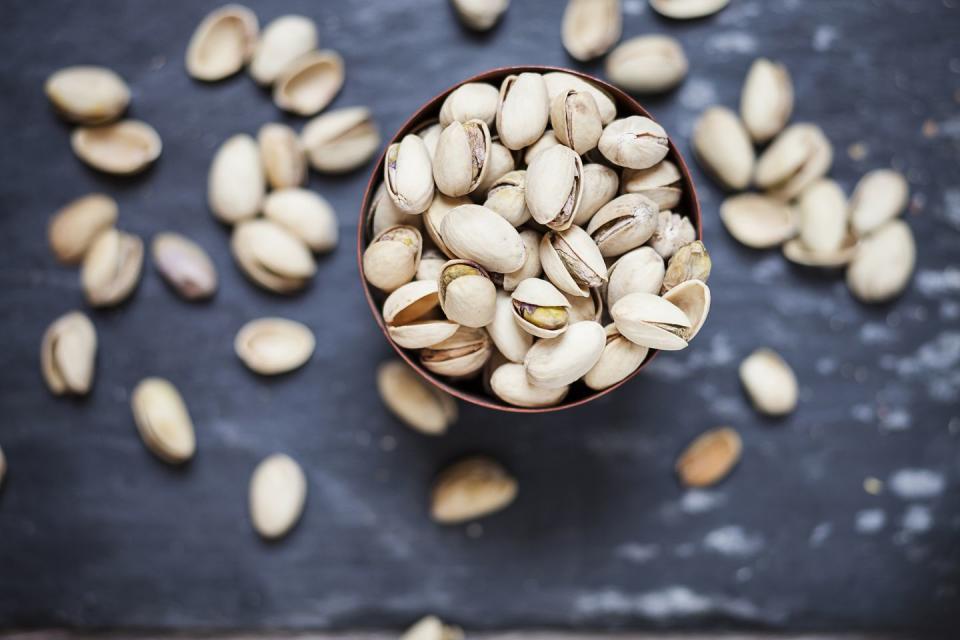
Tempeh
“This is a fermented soy product that is a good source of probiotics in addition to providing plant-based protein,” says Sheth. Tempeh is related to tofu (another fabulous plant-based protein pick), but firmer in structure and texture, so it holds up great to a variety of cooking methods, from sautéing to roasting to air frying. Try cubing it and adding to a rice and veggie bowl. You can also keep it in slabs and cut into it like you do your favorite meat, and it’s great as a sandwich filling.
Protein content: 18-21g protein per 4oz serving (may vary slightly by brand).
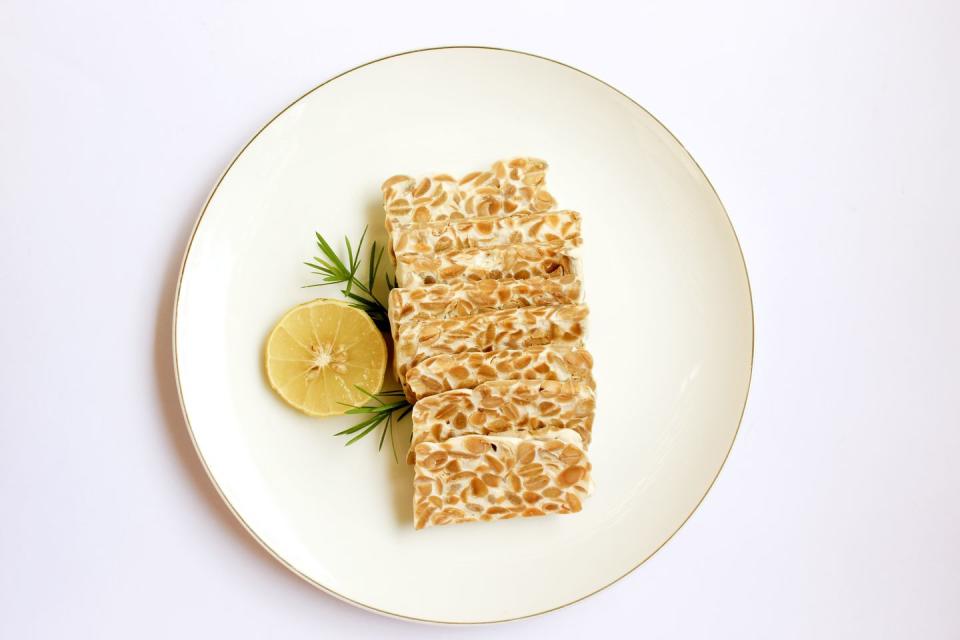
Peas
“These are little nutritional powerhouses, boasting a decent amount of protein and fiber, plus iron and antioxidants such as vitamin C,” says Sassos. “You can find pastas and even rice made from peas, which make for a great plant-based protein base to any dish, and many vegan protein powders are made of peas.”
Protein content: 8g protein per cup.
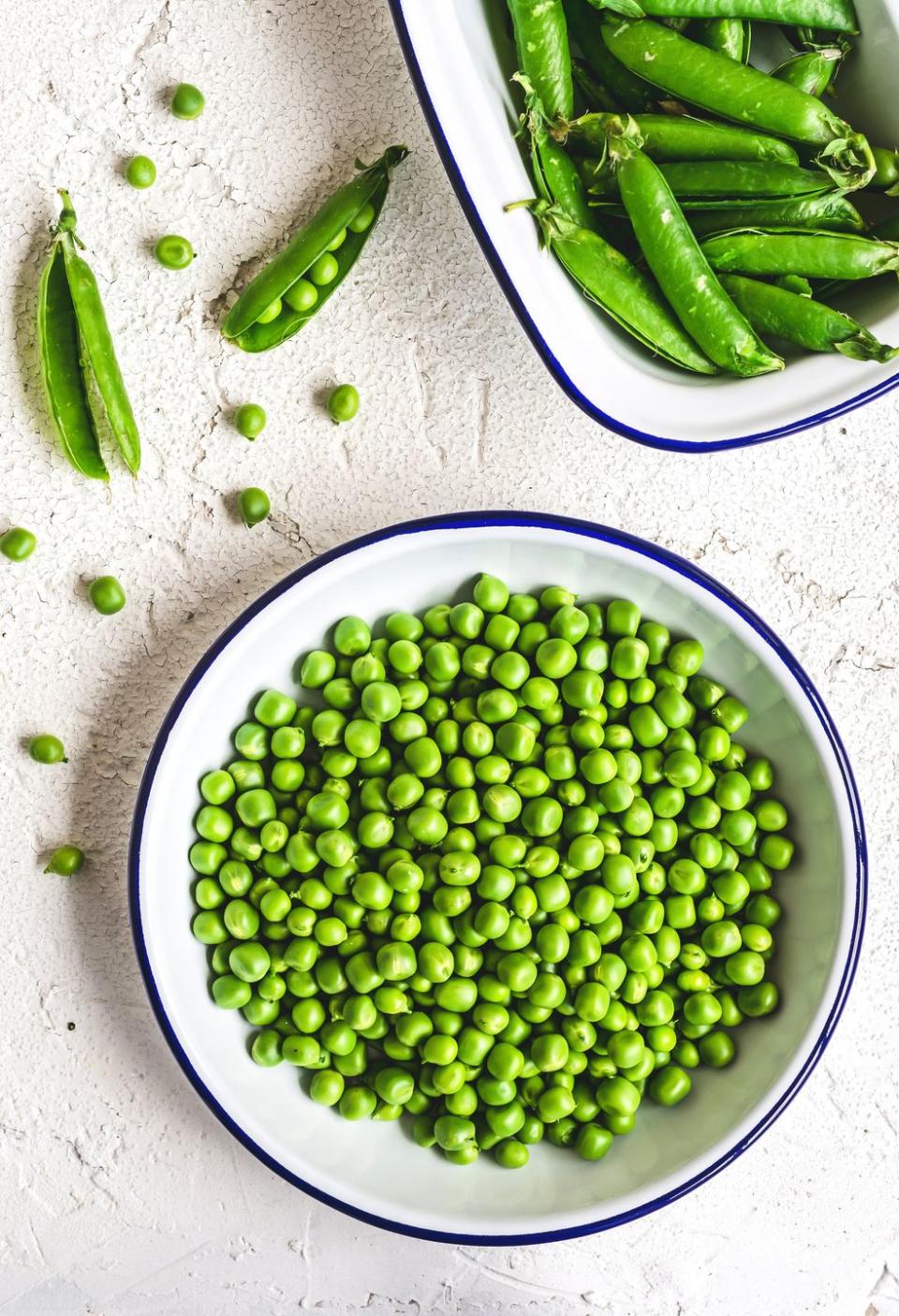
Oats
Oats are another whole grain that provide a sly dose of protein, plus plenty of other necessities, such as fiber for smooth digestion and appetite control and nutrients that support serotonin production for steady mood. “Keep in mind that if you eat a variety of nutrient-dense foods, you’ll still get protein from atypical protein sources,” says London.
Protein content: 5g protein per cup.
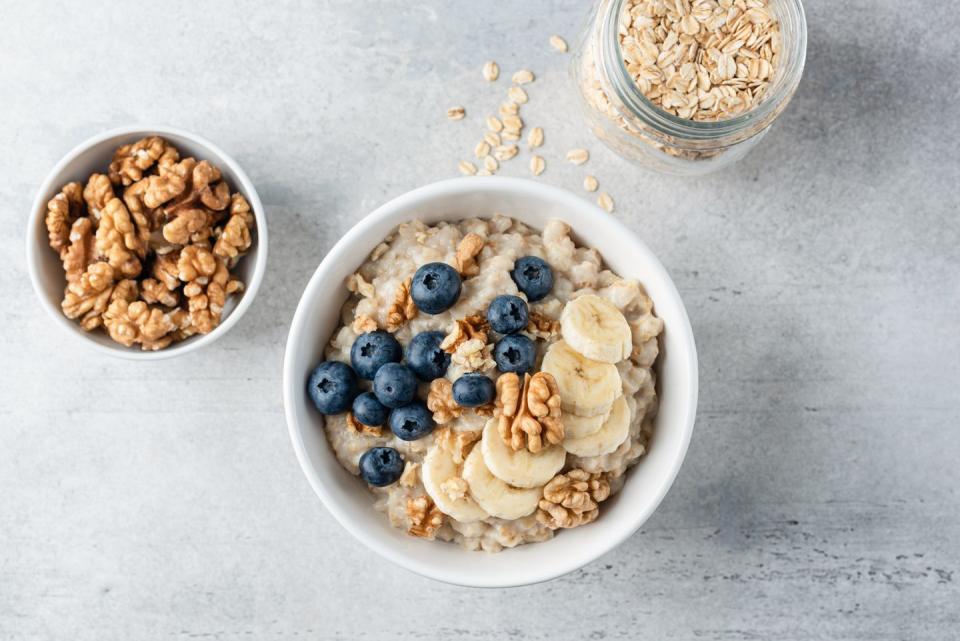
Mozzarella
Go ahead, munch on some string cheese for a snack or plan on a pizza night — mozzarella provides more protein than many other types, and it’s lower in saturated fat when you go for part-skim. If you’re trying to boost your kid’s protein intake, try one of London’s favorite snack combos: Cherry or grape tomatoes and string cheese. Little tomatoes are fun and poppable, and string cheese is a classic favorite, and the two together will keep everyone fueled and full.
Protein content: 10g protein per ½ cup.
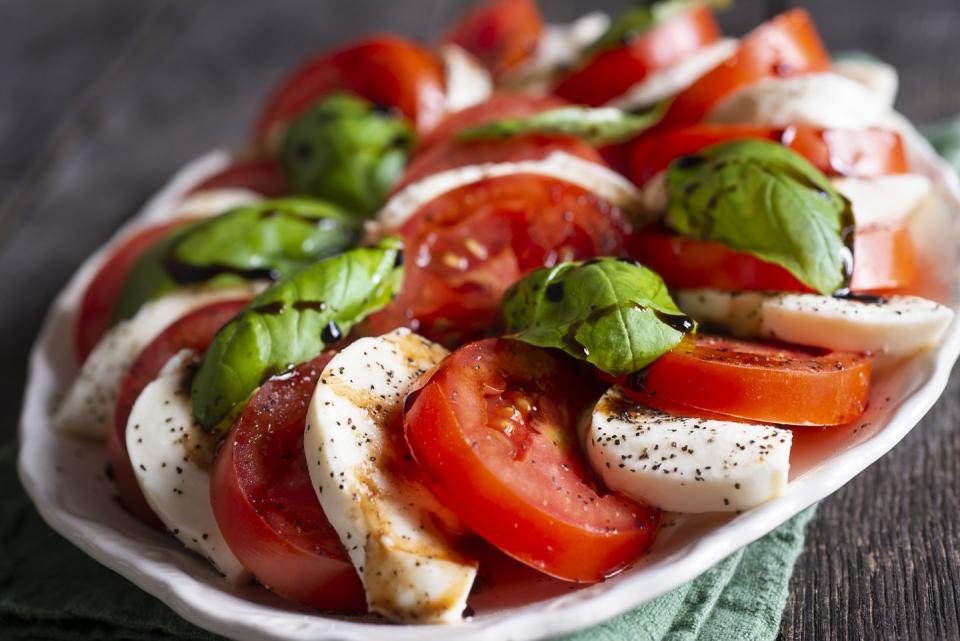
How much protein do I need a day?
Exercise levels, weight and sex will impact how much protein a person should be getting a day. However, according to Harvard Health Publishing, adults need just 0.36 grams per pound. So to find your ideal number, multiple your weight by 0.36. There's also a calculator you can use.

What are some vegetarian protein foods?
We gave you a few recommendations above, but here are some more foods that will do the trick:
Sweet potato: One cup of cooked sweet potato delivers about 4 grams of protein.
Mushroom: You’ll enjoy about 3 grams of protein per cup of cooked mushrooms.
Artichoke: It delivers about 5 grams of protein per cup cooked.

You Might Also Like


